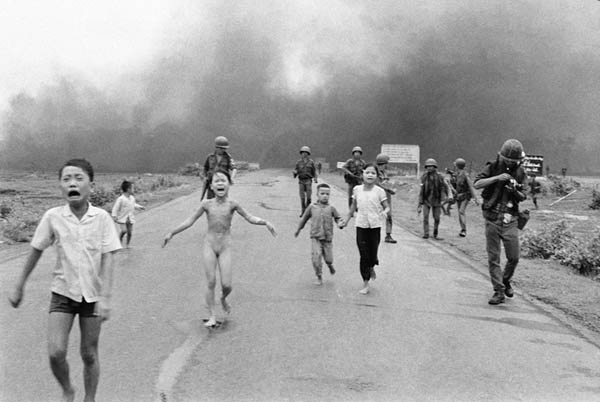 'The Terror of War', 1972, Nick Ut, AAP
'The Terror of War', 1972, Nick Ut, AAP
The Australian Press Council has endorsed strong action taken on Facebook by press watchdog network the Alliance of Independent Press Councils of Europe (AIPCE), which has condemned the social media giant for removing content and called on it to enter into a dialogue on press freedom.
In an open letter to Facebook the AIPCE denounced instances of the company’s arbitrary censorship of content and called on it to distinguish journalism from other uses of the platform, recognising that “Almost every country has a code of ethics and an independent press council, which criticises newspapers that break the code of ethics”.
Australian Press Council Chair Professor David Weisbrot, who took part in the 2016 AIPCE conference where the issue was discussed, had earlier issued a strong statement condemning Facebook’s censorship of the seminal 1972 Vietnam War photograph commonly known as ‘Napalm Girl’.
Professor Weisbrot described Facebook as having “unthinking, one-size-fits-all standards” that result in inappropriate censorship.
Facebook sparked international outrage when it deleted a post on the page of Norwegian daily Aftenposten which contained the iconic image of nine-year-old Phan Thi Kim Phúc running naked and screaming from her village after a napalm attack.
The company also removed the photo from the account of the Norwegian Prime Minister Erna Solberg.
The controversy surrounding the incident, Weisbrot wrote, “shines a spotlight on the growing power of Facebook to shape the world’s news agenda without an adequate and clearly stated editorial policy”.
As a leading global publisher in all but name, the company needed to review the way it aggregates and disseminates news and make public whatever editorial policy it has, the statement said.
Company executives also needed to address “the clumsy and ineffective way in which its moderators and computer algorithms make crucial editorial decisions on behalf of Facebook’s users”.
The Australian Press Council has some expertise in the ethical treatment of children by the media, Professor Weisbrot wrote, being currently involved in the development of guidelines in that area, and it clearly categorised the ‘Napalm Girl’ photo, along with that of the body of three-year-old Syrian refugee Aylan Kurdi, as images the world needs to see.
Facebook had prompted similar outrage in Australia earlier this year, he pointed out, when it censored pictures in a New Matilda article of Aboriginal women preparing for a cultural ceremony.
Facebook has since reinstated the iconic image and said it would be reviewing its policies and mechanisms for assessing photos.
“An image of a naked child would normally be presumed to violate our Community Standards, and in some countries might even qualify as child pornography,” the company said in a statement.
“In this case, we recognize the history and global importance of this image in documenting a particular moment in time … Because of its status as an iconic image of historical importance, the value of permitting sharing outweighs the value of protecting the community by removal.”
The Australian Press Council is an associate member of the Alliance of Independent Press Councils of Europe, which is a network of 34 independent European press councils that meets every year to discuss media ethics. This year AIPCE celebrated the first 100 years of the oldest press council in the world, the Swedish Pressens Opinionsnämnd.